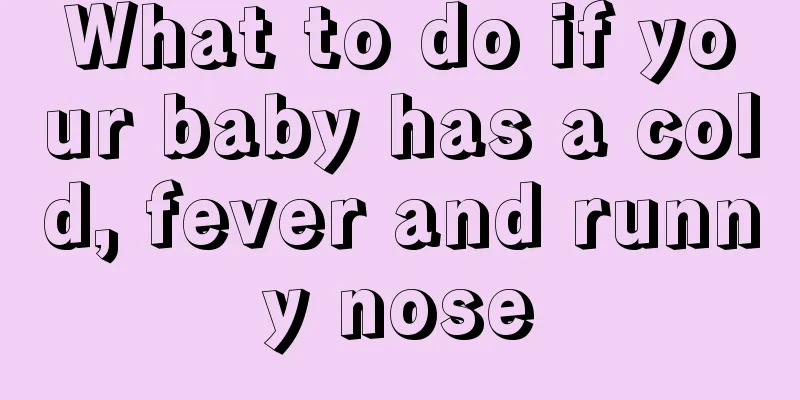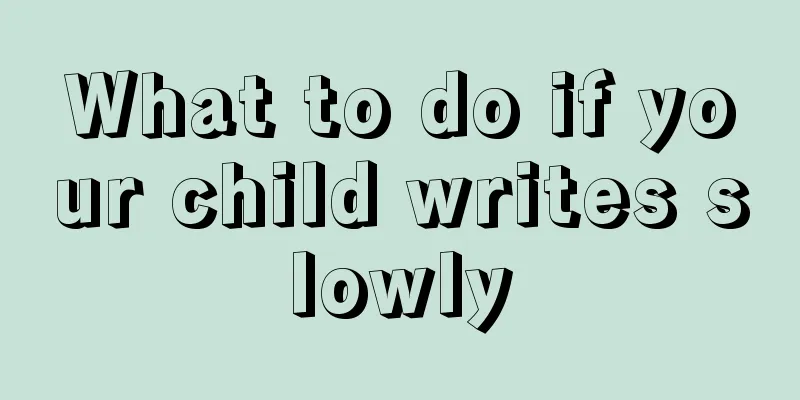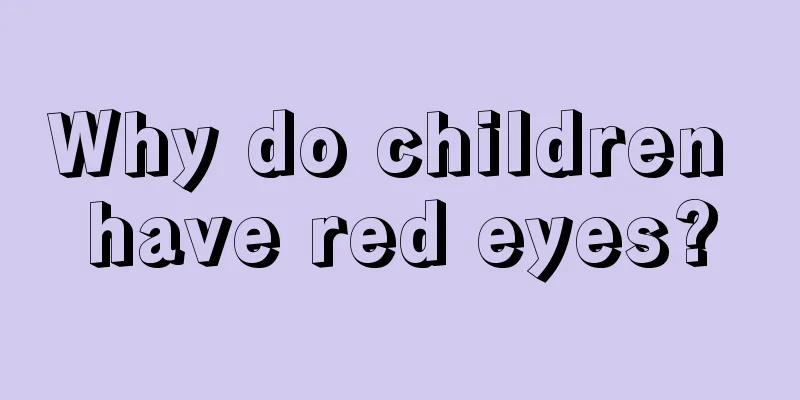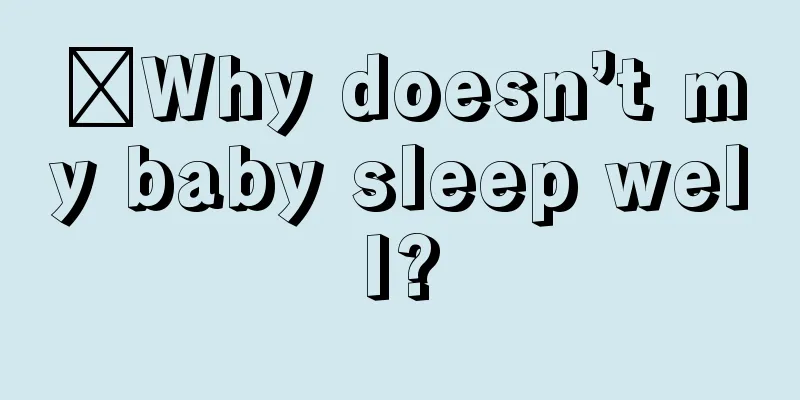What to do if your baby has a cold, fever and runny nose

|
Generally, newborn babies have strong resistance and will not have a fever. It is very common for babies after 6 months to have a cold, fever and runny nose, so mothers should not worry too much. For mild colds, you can use physical methods to reduce the temperature or take some cold medicine. Drink more water. If the condition is serious, you should take your baby to the hospital for examination and let the doctor treat the symptoms. Also, be careful not to feed your baby too greasy food and spend more time with your child. Here are some solutions for you: 1. If the baby only has a slight runny nose and fever, but is in good spirits, can eat, play and sleep, there is generally no big problem. We just need to give the baby some ordinary children's cold medicine. For a fever not exceeding 38.5, we can perform physical cooling, wipe the baby's body with warm water or use a fever-reducing patch. 2. Give your baby more warm water. It will be easier for your baby to cooperate if you change the way he drinks. For example, using a straw, or a water cup that your baby has never used, disposable cups, and other novel measuring utensils will make your baby drink water consciously. Drinking more warm water can help your baby cool down physically. 3. Mothers should spend more time with their babies. Babies feel more insecure when they are sick. With the company of their mothers, babies will feel more at ease and will be more obedient in taking medicine and drinking water, etc. With their mothers around, babies are like taking a reassurance pill and are no longer afraid and in a good mood, which is also conducive to recovery. 4. Sick babies usually have a poor appetite. We should feed them their favorite foods or light foods that are easy to digest, such as vegetable porridge, white porridge, etc. They should not eat greasy or refrigerated foods. 5. Record the baby's symptoms of illness, such as vomiting, poor spirits, loss of appetite, etc. Also, keep track of the baby's body temperature changes, which can be measured every two hours. Also observe whether the baby's urination and defecation are normal, etc. These records will be useful if we take our baby to the doctor. 6. If the baby has a fever for a long time and the temperature exceeds 38.5, then you should take the baby to the hospital for examination and treatment. Generally, the hospital will draw blood from the baby to check whether it is caused by a viral cold or a bacterial infection. The doctor will prescribe the right medicine. All we can do is follow the doctor's advice. 7. Generally, it takes about 3 to 5 days for a baby to gradually get better from a cold or fever. Parents do not need to worry too much. They should take good care of their babies and accompany them to defeat the disease. I believe that after a cold, the baby's body will have developed a lot of antibodies, so think positively. Note: Only give your baby antipyretics when the fever is over 39°C, and do not give it more than 4 times within 24 hours! Eat with caution! |
<<: Three and a half month old baby has unstable head holding?
>>: Can babies eat mangoes when they have a cold?
Recommend
How old can a child be to learn Taekwondo?
Nowadays, parents pay more and more attention to ...
What is the reason why baby has poor appetite?
In summer, the weather is very hot, which can eas...
What causes black testicles in newborns?
Many parents may find that their newborn boys ten...
What to do if the baby has a big gap between his front teeth
When many babies start to grow teeth, there is a ...
Baby's monthly growth
Understanding the growth and changes of the baby ...
Why does the child's belly button protrude?
The baby's belly button is protruding because...
Why is the child's buttocks red?
A child's red buttocks may be a symptom of di...
Sequelae of febrile seizures in children
It is very common for children to have high fever...
What to do if your child has oily hair?
Oily hair is very common in life, especially for ...
Children often have high fever
Children are very easy to get sick when they are ...
How can an 11-year-old girl have inflammation without menstruation?
Many people know that women are very prone to gyn...
Why do children have zinc deficiency?
Recently, many people have asked why children are...
Can a six month old fetus survive premature birth?
It can be said that the physical constitution of ...
Why does the baby twitch when feeding?
Generally speaking, infants' nutritional need...
The child keeps coughing
Your child’s cough won’t go away? For parents, th...









